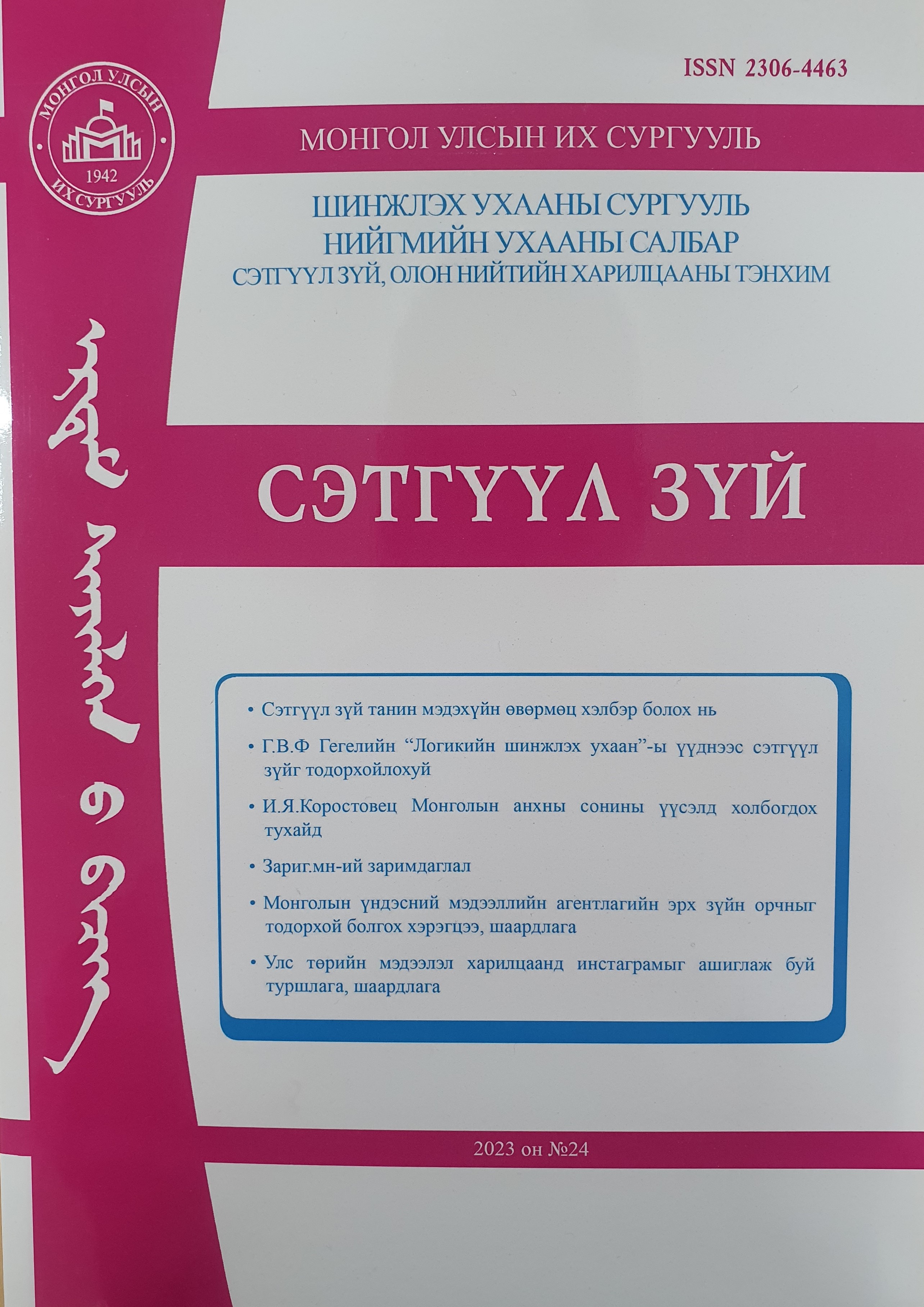СЭТГҮҮЛ ЗҮЙН НӨЛӨӨЛЛИЙН ДИНАМИК: ГУРВАН ОНОЛЫГ ЗАДЛАХ НЬ
Keywords:
Cultivation theory, Framing theory, Agenda setting theory, media, messageAbstract
This article delves into the enduring
relevance of three pivotal theories in
journalism and media studies--Cultivation
Theory, Framing Theory, and Agenda
Setting Theory. In the context of our ever
evolving digital world, where information
dissemination is dynamic and boundless,
these theories continue to serve as essential
frameworks for comprehending the profound
impact of media on public opinion and
societal discourse. Cultivation Theory,
originating from George Gerbner in the
1960s, unravels the long-term influence of
media exposure on individuals' perceptions
of reality. In the digital age, this theory
extends its reach, offering insights into the
effects of diverse media sources on shaping
our worldviews. Framing Theory, focusing on
how the media constructs narratives,
persists as a vital tool for understanding the
selection and portrayal of news. Its
adaptability to an era of user-generated content and participatory storytelling
underscores its significance. Agenda-Setting
Theory, a cornerstone of media studies,
continues to influence what we consider
significant in an era of personalization and
digital participation. Its scope expands
beyond influencing public opinion to
encompass the evolving relationships
between media, public, and policymakers. In
a media landscape marked by constant
change, these theories provide steadfast
guidance for scholars and practitioners,
offering a lens through which to analyze the
multifaceted role of journalism in
contemporary society. As media evolves, so
too do these theories, ensuring their
continued relevance in a dynamic and ever
shifting media environment.
Downloads
Published
Issue
Section
License
Copyright (c) 2024 Сэтгүүл зүй

This work is licensed under a Creative Commons Attribution-NonCommercial 4.0 International License.




